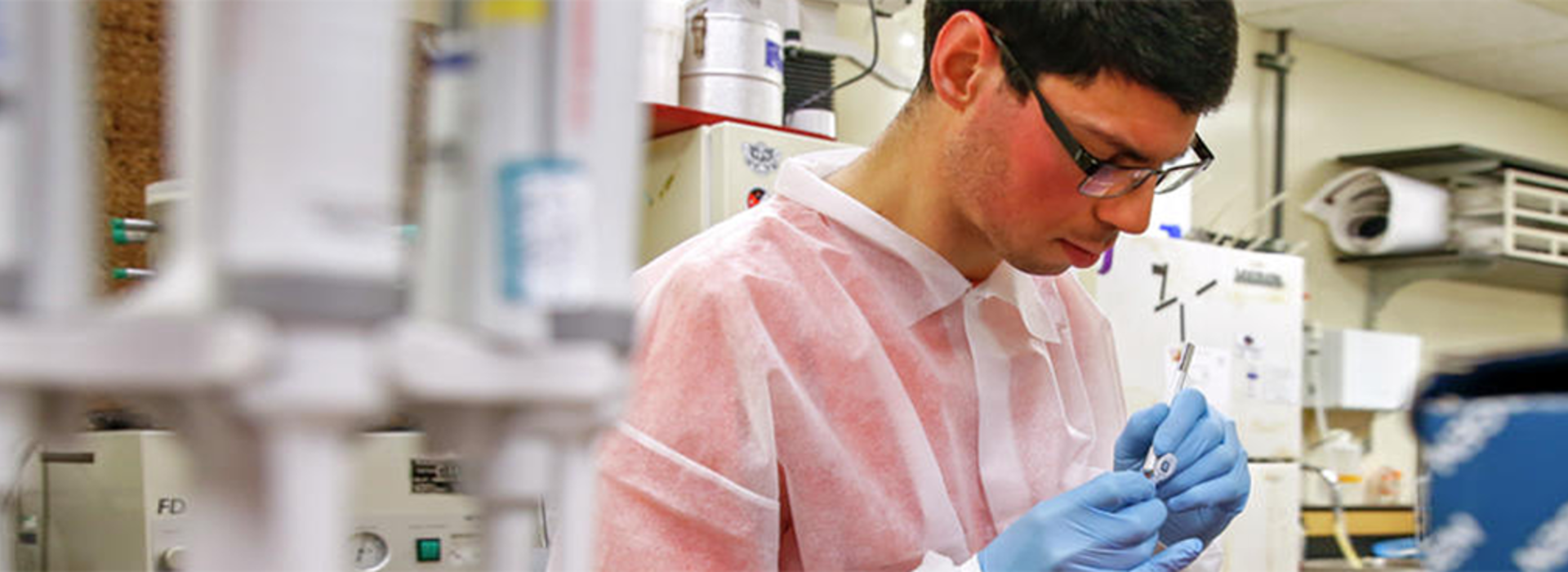
Bridges to the Baccalaureate Mentoring Program puts Undergraduate in the Center of Lyme Disease Research
In 1994, the UMN Medical School, Duluth Campus launched a program through the National Institutes of Health (NIH), to help match local community college students with mentors in biomedical sciences who have plans to obtain a biomedical/biobehavioral science-related baccalaureate degree. 25 years later, the Bridges to the Baccalaureate Program has evolved into developing innovative Lyme disease research with its current and founding advisor, Dr. Benjamin Clarke, an associate professor of Biomedical Sciences.
"I thought it was really cool," said Jubran Jindeel, a trainee in the Bridges to the Baccalaureate Program, as he was being interviewed recently in the program's headquarters at the Duluth campus. "It's hard to just walk in here and talk to a professor. ... It was really cool to have that 'in' as a way to get into doing some research."
Jindeel joined the program when he was a freshman at Lake Superior Community College, and since then has been participating in Dr. Clarke's ongoing Lyme disease research, which involves collecting ticks and analyzing which carry the bacteria that causes the disease.
"Jubran is one of the technical wizards who is going to inspect the ticks and determine if they carry the bacteria that causes Lyme disease," said Clarke.
In August, Jindeel, whose heritage is Middle Eastern, submitted the project to a panel and was chosen to present it in November at the annual Biomedical Conference for Minority Students. Now a junior at the University of Minnesota Duluth, Jindeel is keeping his options open, he said. He knows he wants to be involved in scientific research, and he knows that will require graduate studies.
"He's very bright, and he's a quick study," Clarke said. "He's going to do well in his career."
The Bridges to the Baccalaureate Program is a partnership between Lake Superior College, Fond du Lac Tribal & Community College, and the University of Minnesota Medical School, Duluth Campus. Learn more about the Bridges to the Baccalaureate Program.